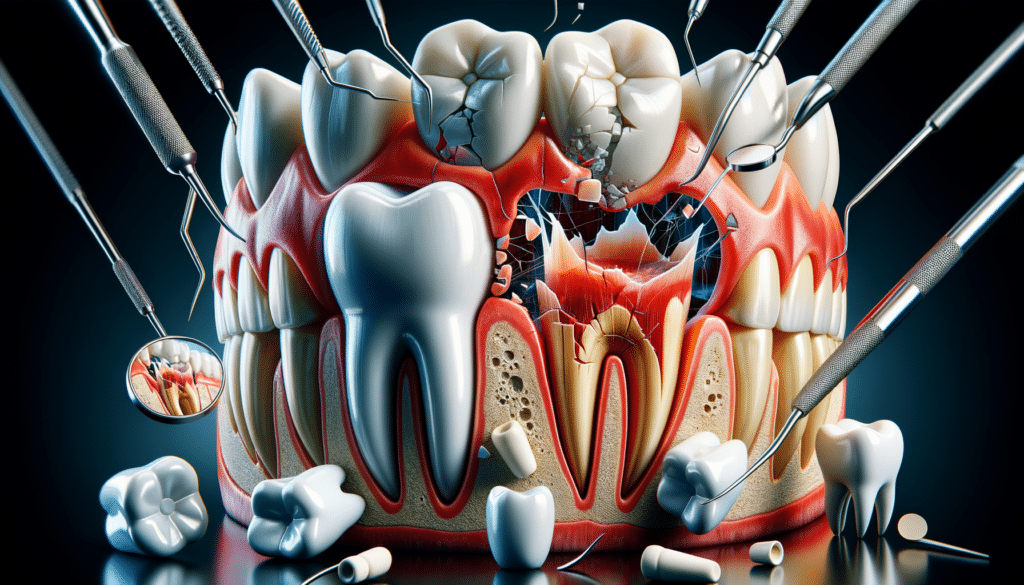Understanding Dental Crowns
Dental crowns, often referred to as “caps,” are a common dental restoration technique used to cover or encase a damaged tooth. They are designed to enhance the appearance, strength, and functionality of teeth that are compromised due to decay, wear, or injury. Crowns can be made from various materials, including porcelain, ceramic, metal, and resin, each offering distinct advantages. The choice of material often depends on the location of the tooth, the patient’s aesthetic preferences, and the dentist’s recommendation.
The process of getting a dental crown typically involves two visits to the dentist. During the first visit, the dentist prepares the tooth by removing any decay and shaping the tooth to fit the crown. An impression of the tooth is then taken to create a custom crown that matches the patient’s bite. A temporary crown is placed to protect the tooth until the permanent crown is ready. On the second visit, the temporary crown is removed, and the permanent crown is cemented into place. This procedure not only restores the tooth’s functionality but also its appearance, providing a long-lasting solution to dental issues.
Types of Dental Crowns
There are several types of dental crowns, each with unique characteristics that cater to different dental needs. The most common types include:
- Porcelain Crowns: Known for their natural appearance, porcelain crowns are ideal for front teeth where aesthetics are a priority.
- Ceramic Crowns: Similar to porcelain, ceramic crowns provide a natural look and are often used for visible teeth. They are also biocompatible, reducing the risk of allergic reactions.
- Metal Crowns: Made from gold or other metal alloys, these crowns are highly durable and are typically used for molars that endure significant chewing force.
- Porcelain-Fused-to-Metal (PFM) Crowns: These crowns combine the strength of metal with the aesthetic appeal of porcelain, making them a versatile option for both front and back teeth.
- Resin Crowns: While less expensive, resin crowns are more prone to wear and are generally used as a temporary solution.
Each type of crown has its benefits and limitations, and the choice largely depends on the specific needs and preferences of the patient. Consulting with a dental professional is crucial in selecting the most suitable option.
Benefits of Dental Crowns
Dental crowns offer a myriad of benefits that extend beyond mere aesthetics. Here are some key advantages:
- Restoration of Functionality: Crowns restore the ability to chew and speak properly, especially if the tooth was severely damaged.
- Protection of Weakened Teeth: They provide a protective cover for teeth that are cracked or decayed, preventing further damage.
- Durability: With proper care, dental crowns can last between 5 to 15 years, offering a long-term solution.
- Improved Appearance: Crowns can significantly enhance the appearance of teeth, offering a natural look that blends seamlessly with existing teeth.
- Support for Dental Bridges: Crowns can be used to hold a dental bridge in place, providing stability and support.
These benefits make dental crowns a popular choice for those seeking to restore their oral health and improve their smile.
Potential Drawbacks and Considerations
While dental crowns are highly beneficial, there are some potential drawbacks and considerations to keep in mind:
- Cost: Dental crowns can be expensive, especially those made from high-quality materials like porcelain or ceramic.
- Sensitivity: Some patients may experience sensitivity to hot or cold temperatures following the placement of a crown.
- Replacement Needs: Although durable, crowns may need to be replaced if they become loose or damaged over time.
- Allergic Reactions: In rare cases, patients may experience allergic reactions to the materials used in the crown.
- Potential for Discomfort: If the crown is not fitted properly, it may cause discomfort or affect the bite.
It’s important for patients to discuss these considerations with their dentist to ensure they are fully informed before proceeding with the treatment.
Maintaining Dental Crowns
Proper maintenance is crucial to extend the lifespan of dental crowns and ensure oral health. Here are some tips for maintaining dental crowns:
- Regular Dental Check-ups: Routine visits to the dentist can help monitor the condition of the crown and address any issues promptly.
- Good Oral Hygiene: Brushing twice a day and flossing daily can prevent decay and gum disease, which can affect the crown.
- Avoid Hard Foods: Chewing on hard foods or ice can damage the crown, so it’s advisable to avoid such habits.
- Use a Night Guard: For those who grind their teeth, using a night guard can protect the crown from excessive wear.
- Address Issues Promptly: If the crown feels loose or causes discomfort, it’s important to consult a dentist immediately.
By following these maintenance tips, patients can enjoy the benefits of dental crowns for many years, ensuring a healthy and beautiful smile.





